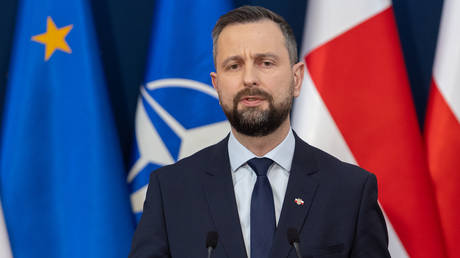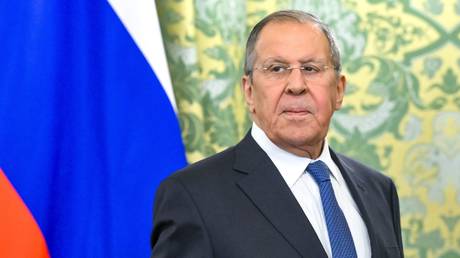
Last week, Kiev suspended consular services to males residing abroad in a bid to force them to register for service
The European Union should come up with a uniform approach to dealing with draft-eligible Ukrainian men residing in the bloc, Polish Defense Minister Wladyslaw Kosiniak-Kamysz has argued. He added that Warsaw was willing to assist Kiev in that regard, which has recently intensified efforts to conscript more servicemen.
Facing an intensifying shortage of personnel on the front line, the Ukrainian government last month amended its mobilization laws, lowering the age of conscription from 27 to 25, tightening exemptions, and adding harsher penalties for draft dodgers. Last week, the Ukrainian authorities also stopped issuing passports to all men aged 18 to 60 who live abroad and have not registered at a military recruitment center back home.
Speaking during a press conference on Tuesday, Kosiniak-Kamysz said: “It is very important, and we talked about it, that these are solutions at the European level, and I know that talks between Ukraine and Brussels, between Kiev and Brussels are ongoing on this topic.” According to the minister, “solutions at the European level will ensure full effectiveness of this action.”
He stated that should Ukraine ask for support or assistance, Poland would cooperate. Kosiniak-Kamysz also revealed that Polish ministers had discussed the issue of extending residence permits for Ukrainian men residing in the country.
Meanwhile, Polish Foreign Minister Radoslaw Sikorski has been less categorical, describing the matter as “ethically ambiguous.”
Last Wednesday, the Polish defense minister told the Polsat broadcaster that “many of our compatriots were and are outraged when they see young Ukrainian men in cafes and hear about how much effort it takes us to help Ukraine.”
On Monday, the prime minister of neighboring Lithuania, Ingrida Simonyte, said that her country could take steps to make conscription-age men return to Ukraine through residence permit extensions. She also maintained that any such steps should be discussed at the EU level.
According to Simonyte, Ukrainian refugees residing within the bloc currently enjoy temporary protection status that gives them the right to extended visa-free stay in the EU, as well as getting help with accommodation, medical care, employment, and education. The provision is in force until March 2025.
An estimated 4.3 million Ukrainians currently live in the EU, of whom 860,000 are conscription-age men, according to Eurostat statistics agency.




